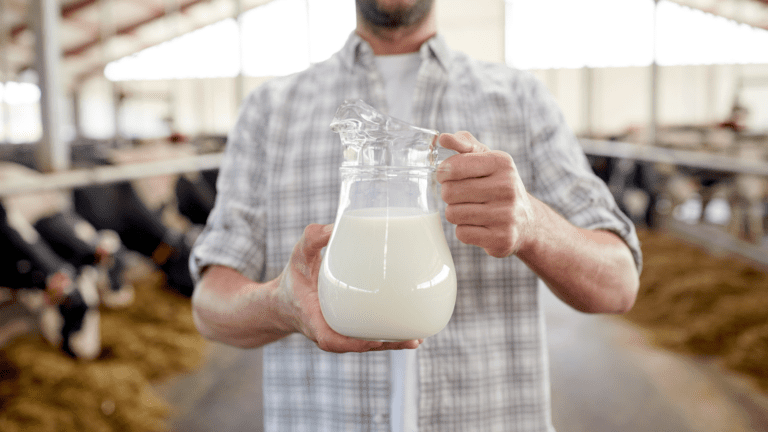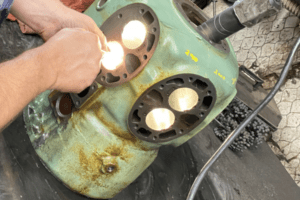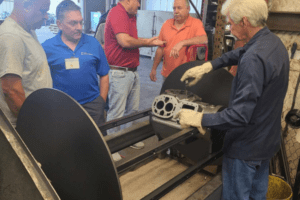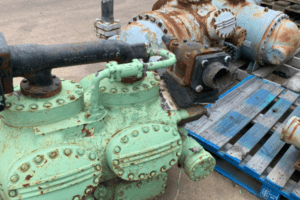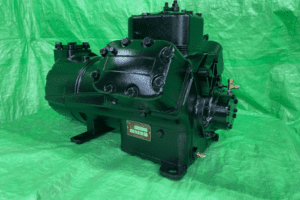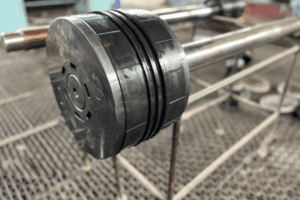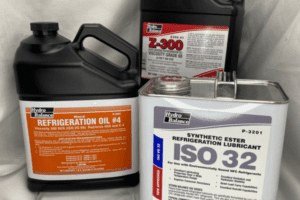

There are more than 40,000 dairy farms in the United States. Some areas, like the Midwest, have more overall dairy production than others. But few areas are completely without dairy farms, since local production reduces the refrigeration needed for dairy products to go from farm to shelf to table.
Dairy makes a big difference in America, responsible for nearly 1 million direct jobs. Of all dairy products, milk has the highest overall economic impact, just ahead of cheese. American dairy products are recognized for quality all around the world, making the U.S. the #2 cheese exporter worldwide.
Almost a quarter of the world’s cheese is made right here in the United States.
As the U.S. dairy industry becomes increasingly globalized, refrigeration of dairy products becomes even more important. The United States has some of the highest standards on Earth for the quality of milk sold to consumers. Dairy products that get exported demand even more intensive refrigeration.
That raises the question: What happens when dairy farmers have a failed refrigeration compressor?
It’s the worst-case scenario, but it’s also something that every dairy farmer plans for.
And when it does happen, there may be only minutes to save a large quantity of milk.
Refrigeration Compressor Failure Can Create a Major Chain Reaction at a Dairy Farm
The compressor is by far the most crucial part of any refrigeration system.
It has been referred to as the “heart” of any refrigeration or cooling setup. It does critical mechanical work by compressing refrigerant gasses. The pressure generated in the compression process enables the gas to proceed throughout the rest of the system, allowing the other components to do their part.
Over time, every element of a refrigeration system loses efficiency. If there is damage to one piece of the system, the rest will need to work harder. In most cases, however, refrigeration will continue. Greater energy use and more mechanical stress put the system at risk, but it continues to operate, potentially at a lower level.
Not so when it comes to the compressor: Once it fails, the entire system grinds to a halt.
This is bad news for dairy farmers, who may have hundreds or thousands of gallons of milk in some state of cooling at any given time. Likewise with cheese: The cheese ripening process can take weeks, months, or even years. Temperature and humidity must both be carefully controlled from beginning to end.
Any refrigeration compressor failure can put all of this work in jeopardy.
It only takes a few minutes for rising temperatures to foster bacterial growth in milk. Milk that is even ten degrees above the target temperature for any length of time may need to be destroyed. As any homeowner knows well, milk does not do well at room temperature for very long!
If a compressor fails anywhere on a dairy farm, seconds count.
There are three main ways to address this kind of emergency:
1. Move Endangered Product to a Fully Refrigerated Area
Any dairy products no longer benefiting from full refrigeration will need to be moved as soon as possible. A dairy farm often has a variety of refrigeration zones that are designed to be efficient and self-contained. This includes emergency storage since unexpected compressor failure can and does happen.
2. Perform Emergency Maintenance on the Compressor
Some types of compressor problems can be resolved right away with emergency maintenance. That said, it is essential to plan for the eventual replacement of any commercial compressor. Compressors may last up to ten years with appropriate maintenance, but they will begin to lose efficiency as they age.
3. Divert, Slow Down, or Temporarily Shut Down Production
This is the biggest problem that can arise in a dairy farm that suddenly finds itself short of the necessary compressor power it needs to keep the production going. A backlog can develop quickly. Farmers may be stuck in a situation where they have to reduce their throughput or else destroy product that exceeds the maximum safe temperatures.
Remanufactured Commercial Compressors Prevent Worst Case Scenarios on the Farm
Remanufactured commercial compressors offer dairy farms and other agriculture businesses a greater measure of safety. By investing in a remanufactured compressor, you get all the quality of a new compressor at a fraction of the price. This enables dairy farmers to quickly replace a faulty compressor with a compatible model when the time arises.
Copeland compressors and other brands trusted in agriculture are available as remanufactured units that can be delivered in weeks rather than months. That’s the best way for dairy farmers to take the unexpected in stride.

